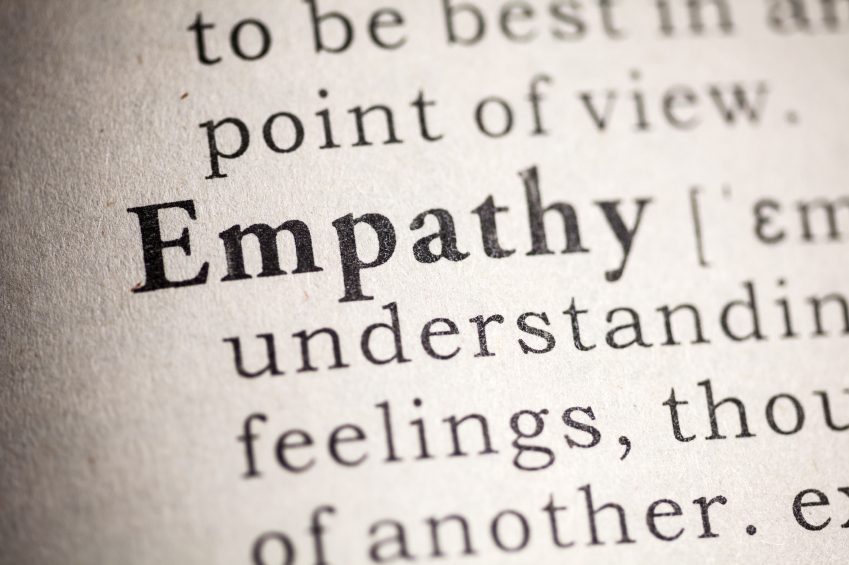 Merriam-Webster defines empathy as the ability to share someone else’s emotions. That is an accurate description but, in my book, empathy goes beyond that.
Merriam-Webster defines empathy as the ability to share someone else’s emotions. That is an accurate description but, in my book, empathy goes beyond that.
Empathy allows us to be really present with a loved one. It gives us a chance to stop thinking about ourselves, stop making judgments or conclusions, and gives us an opportunity to become absorbed in another person’s perspective on the world.
It’s all about understanding and connecting, which can be difficult when someone you love is struggling with a mental health disorder such as Borderline Personality Disorder (BPD) or an eating disorder (ED).
The Power of Empathy
As a teen, I was a straight-A student, worked a part-time job at a movie theater, worked in the theatre department at school, and was constantly trying to prove to others that I was in control. Since I was so successful in all of these endeavors, no one in my family or circle of friends ever asked me why, at five foot seven, I weighed only 104 pounds.
In fact, I was struggling with an eating disorder. Denying myself food was just another way for me to control my life. I didn’t realize this until I met Laraine, my piano teacher. In addition to teaching me what has since become a rewarding lifelong pastime, Laraine ultimately became somewhat of a counselor.
In the middle of practice, Laraine would casually ask me what I had eaten that day. Inevitably, my answer was “coffee.” I was so far into my eating disorder that I considered coffee a meal. She would nod and, without judgment, ask me why that was all I’d had. She would then listen to my answer.
In retrospect, my answer must have sounded crazy (as it sounds to me now): that I couldn’t “see the bones in my wrist enough,” so I must not be hungry.
‘A Love Skill’
On BPDFamily.com, an online support group for families with Borderline Personality Disorder, Dr. Scott Peck calls empathy “a love skill.” This is accurate, though ironic in that those who loved me most were at the time unable to empathize.
My parents, years later, did reveal to me that they were worried about my appearance. So afraid of conflict, so afraid of an answer like the one I gave Laraine above, they avoided reaching out to me.
It’s possible, probable even, that they would not have been able to listen without judgment the way Laraine did. Though Laraine knew the absurdity (and danger) behind my answer as to how I determined my hunger level, she put herself in my position — that of an over-achieving child of divorce trying to keep her life and emotions under control.
Laraine discussed my challenges and fears with me in between Beethoven adagios and Bach minuets, never warning or analyzing, always offering an “I can see how that must be frustrating,” or an, “I bet that’s difficult.” Over the period of two years, I was empowered through the way in which she saw the world through my eyes and allowed me to come to my own conclusions as to what was really going on inside of me. It must have taken a lot of patience and strength for her to do that, but that is, thankfully, who she is.
The beauty of empathy is that, although you are given this opportunity to see the world through another person’s eyes, you remain strong in who you are. You are reaching out, your strengths and wisdom and perspective intact, to truly understand without judgment.
Says Peck, “Listen with empathy to support their heart.”
When someone you love is hurting themselves because of their symptoms of Borderline Personality Disorder or an eating disorder, it can be difficult to step outside of your own judgment and analysis of the situation and “support their heart.”
Empathy, just like patience, love, and listening, is a tool available to all of us. It is a “skill,” as Peck calls it, that often simply needs to be honed.



